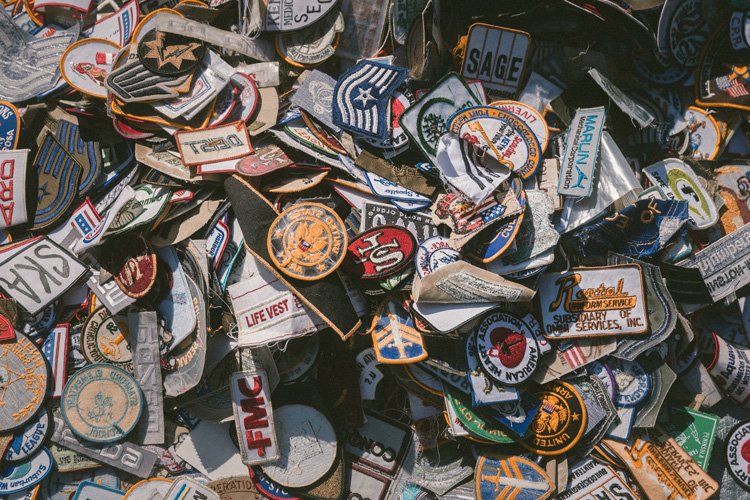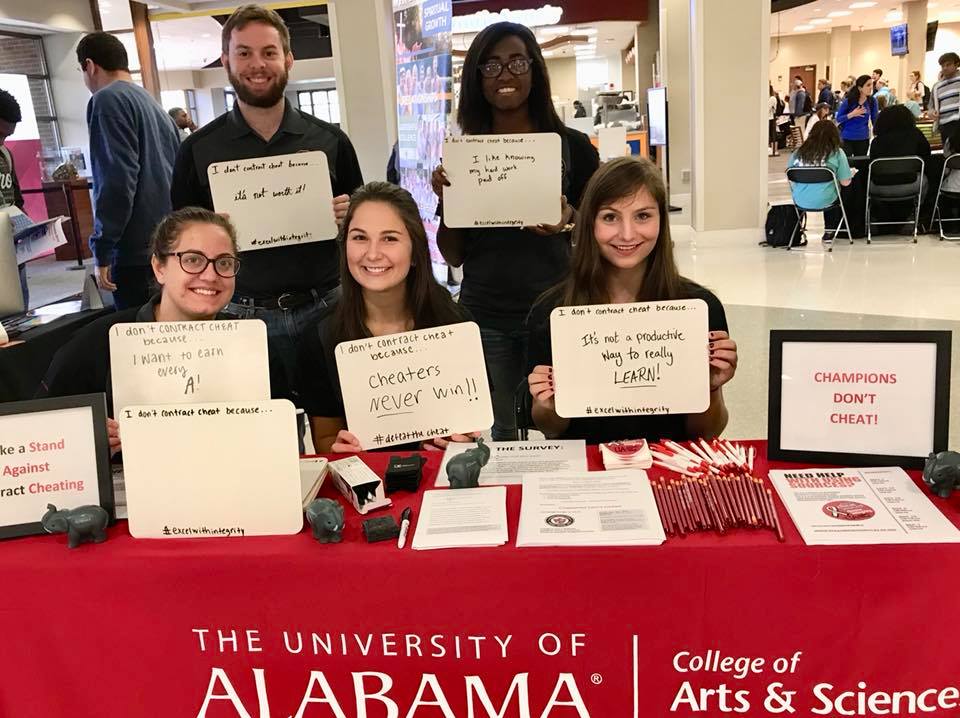The University of Alabama has a revised Academic Misconduct Policy. Under section C.1.a.(2), the policy includes an important change related to self-plagiarism, prohibiting students from “resubmitting your own previously submitted work without proper citation and permission from the current instructor to whom the original work is subsequently submitted.” See the full Academic Misconduct Policy (pdf)
Tag: academic misconduct
Surprise! Experiential Learning Course Design Assists Academic Integrity

by Karen Hollingsworth Gardiner, College of Arts & Sciences I attended my first International Center for Academic Integrity (ICAI) conference in 2016. Fellow attendees repeatedly recommended James Lang’s Cheating Lessons (Harvard U P, 2013), which I found so eye-opening that the next year I applied for and became a Learning in Action Fellow. What’s the link? An explanation: Lang suggests that we “add one final element to our courses” to help students connect to our coursework in “authentic ways over […]
Read More from Surprise! Experiential Learning Course Design Assists Academic Integrity
Under Pressure: Four Ways to Enable Academic Integrity

by Alexandria Gholston, Department of English Imagine you are an Olympic athlete, and you are about to compete for your country. Imagine the pressure of having your family, friends, teammates, and your country all counting on you to represent them in front of the world. How would you handle such pressure? Would you fold, or would you embrace the moment and seize the opportunity to put all of your hard work on display? Athletes competing at the Olympics spend four […]
Read More from Under Pressure: Four Ways to Enable Academic Integrity
Living to See Another Day: Survival Through Academic Integrity

by Khadeidra N. Billingsley, Department of English In Imperial China, from the 17th to the early 20th century, individuals who wanted to pursue a career in civil service were required to pass a series of rigorous exams. These tests were only offered every few years and the results could literally change people’s lives. It goes without saying (but I will say it), that the consequences associated with cheating on such a high-stakes examination were severe, including the possibility of the […]
Read More from Living to See Another Day: Survival Through Academic Integrity
Solving the Patchwriting Problem, Part 3: Teaching Paraphrasing/Avoiding Patchwriting
by Karen Hollingsworth Gardiner, College of Arts & Sciences Merriam-Webster.org, considering whether or not “patchwriting” should be added to the dictionary, suggests that the concept is a gray area, a sort of “less judgmental midpoint that can be seen as a ‘teachable moment’ rather than an all-or-nothing accusation of plagiarism.” This is especially the case with writing that is still at the draft stage of the writing process, writing in progress but not yet turned in for a grade. See, […]
Read More from Solving the Patchwriting Problem, Part 3: Teaching Paraphrasing/Avoiding Patchwriting
Solving the Patchwriting Problem, Part 1: What is Patchwriting?

by Karen Hollingsworth Gardiner, College of Arts & Sciences In her 1992 Journal of Teaching Writing article “A Plagiarism Pentimento,” Rebecca Moore Howard coined the phrase “patchwriting” to describe the student practice of “copying from a source text and then deleting some words, altering grammatical structures, or plugging in one-for-one synonym substitutes” (233). An example would the student who hews too closely to the original text when trying to incorporate research into their writing. For instance, a student might read […]
Read More from Solving the Patchwriting Problem, Part 1: What is Patchwriting?
Solving the Patchwriting Problem, Part 2: What IS the Patchwriting Problem?

by Karen Hollingsworth Gardiner, College of Arts & Sciences In a previous post, “What is Patchwriting?” I included an early definition by Rebecca Moore Howard, who has continued to research and write about this issue for over twenty-five years. Her interest in plagiarism and student citation practices led her to conduct the seminal 2010-2013 Citation Project, a study of the citation practices of 174 first-year students from 16 colleges and universities across the US. Sandra Jamieson (Director of the Writing […]
Read More from Solving the Patchwriting Problem, Part 2: What IS the Patchwriting Problem?
Plagiarism-Proof Assignment?

by Karen Hollingsworth Gardiner, Academic Integrity Initatives It’s a catchy “click-bait” title: “Plagiarism-proof Assignments.” Unfortunately, it’s also a myth. There’s no such thing. If students intend to plagiarize, they will typically find a way, despite our best efforts. The good news is that most students don’t intend to plagiarize, and there are things we can do to help students avoid the plagiarism urge. (See Tips on Assignment Writing for many practical suggestions for developing plagiarism-aware assignments). In addition to these suggestions, […]
A&S Whiteboard Event Focuses on Contract Cheating

by Karen Hollingsworth Gardiner, Academic Integrity Initiatives What is Contract Cheating? Contract cheating is the dishonest academic practice of intentionally seeking work done by someone else and submitting it as one’s own, and according to Sarah Elaine Eaton of the University of Calgary, it is on the rise across the globe — a “black market for academic work [that] is vast and little understood.” Eaton reports that a quick Google search for “Canada” and “write my essay” resulted in over […]
Read More from A&S Whiteboard Event Focuses on Contract Cheating